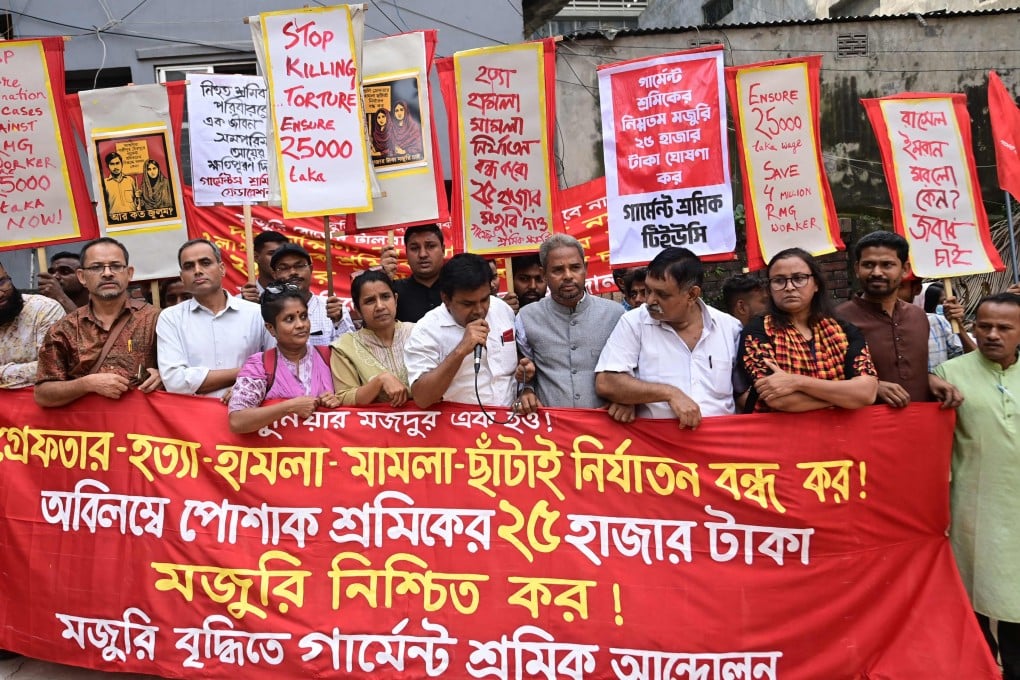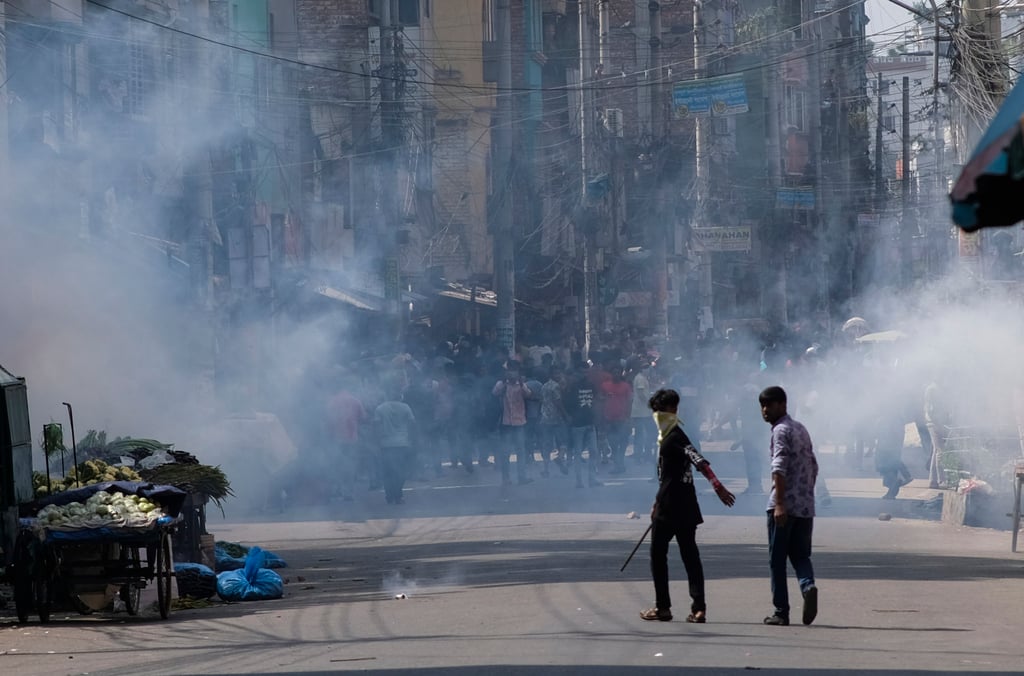Fashion brands from H&M, Zara face higher costs as Bangladesh garment workers get almost 60% pay hike
- Following a week of deadly clashes between workers and police over pay, the government announced a 56.25 per cent wage increase
- Low wages helped Bangladesh become the world’s largest garment exporter after China, but soaring fuel and power prices added to the cost of living for workers

Following a week of deadly clashes between garment industry workers and police over pay, the government on Tuesday said the minimum wage would rise by 56.25 per cent to 12,500 takas (US$114) a month from December 1, the first increase in five years.
On Wednesday, a female worker was killed and several others were injured in the latest clashes.
Police said they used tear-gas and rubber bullets to break up protests by hundreds of workers who rejected the new pay rise and took to streets in the garment hub of Gazipur, on the outskirts of the capital Dhaka.
“The workers blocked roads and vandalised several vehicles. We had to use tear gas, rubber bullets and sound grenades to disperse the unruly workers, who were throwing brick chips at us,” local police officer Ashraf Uddin said.

